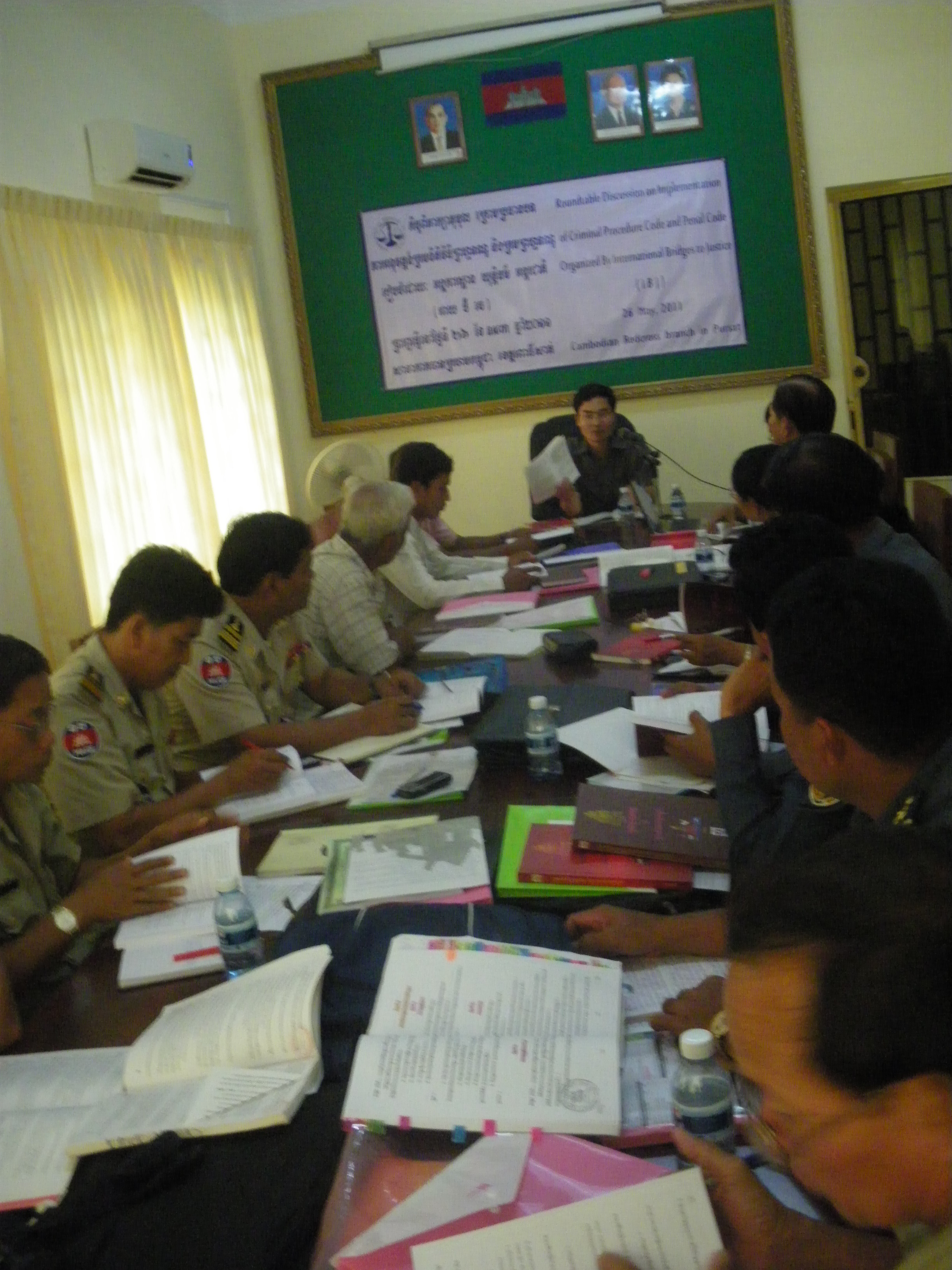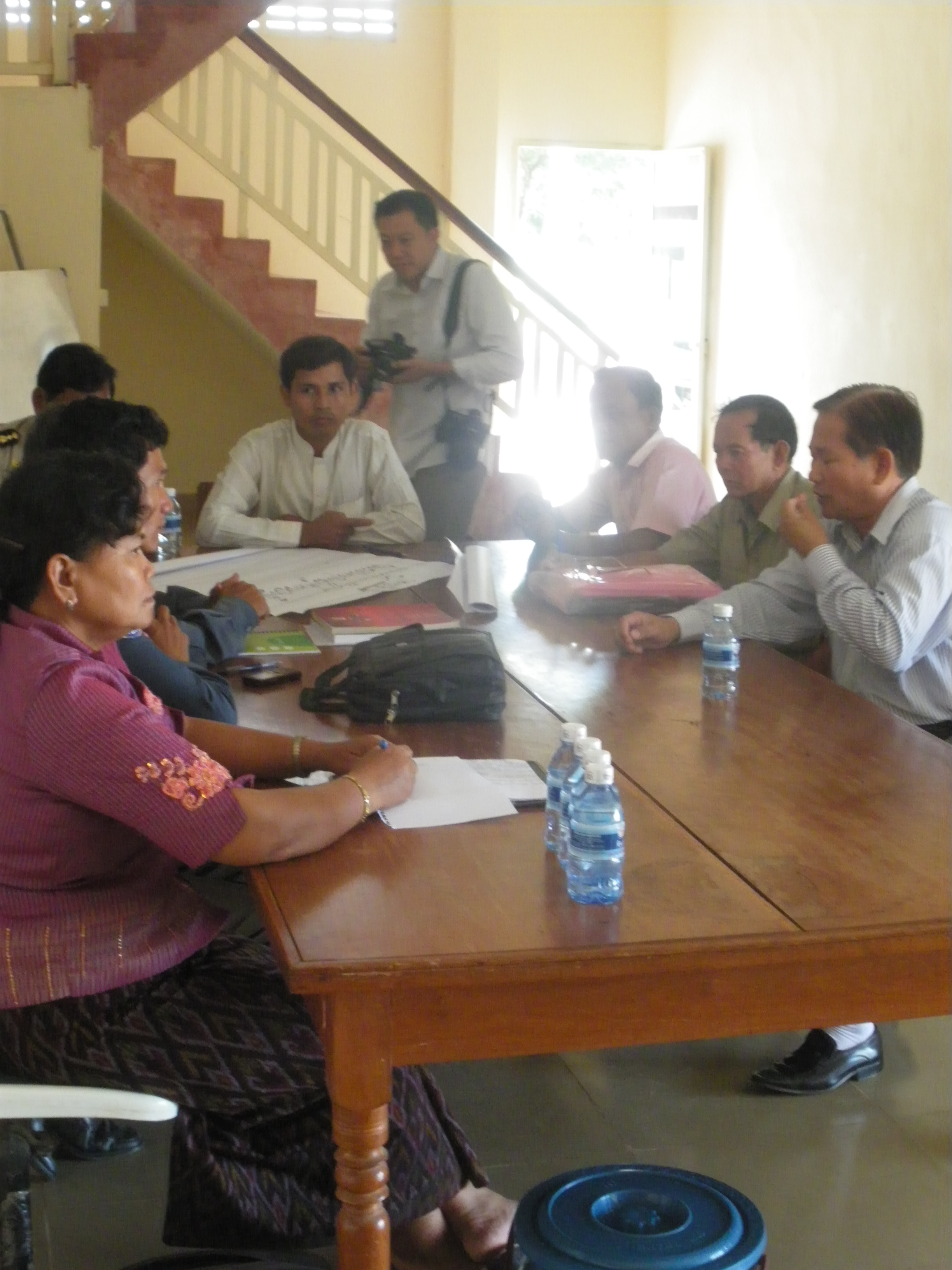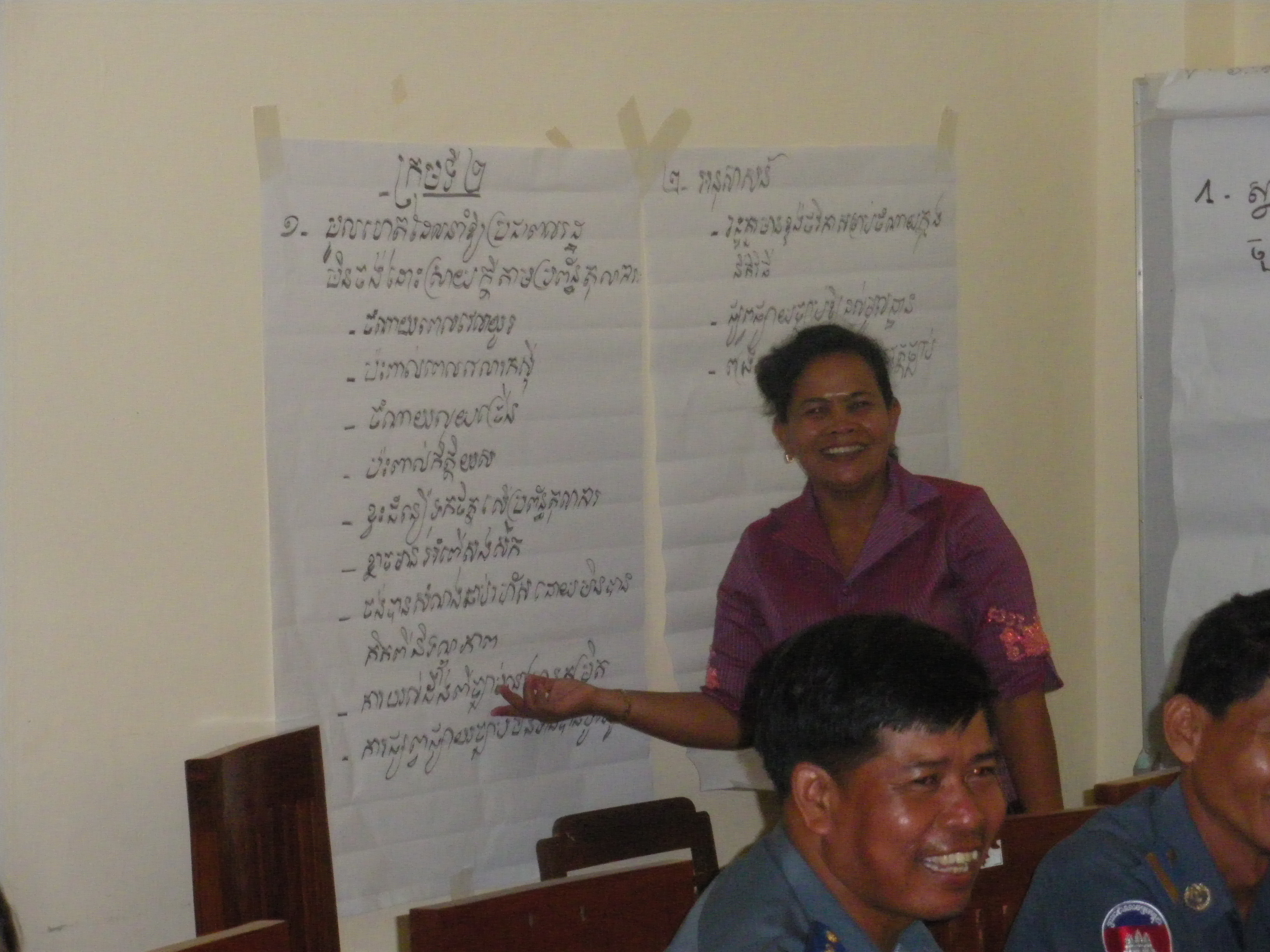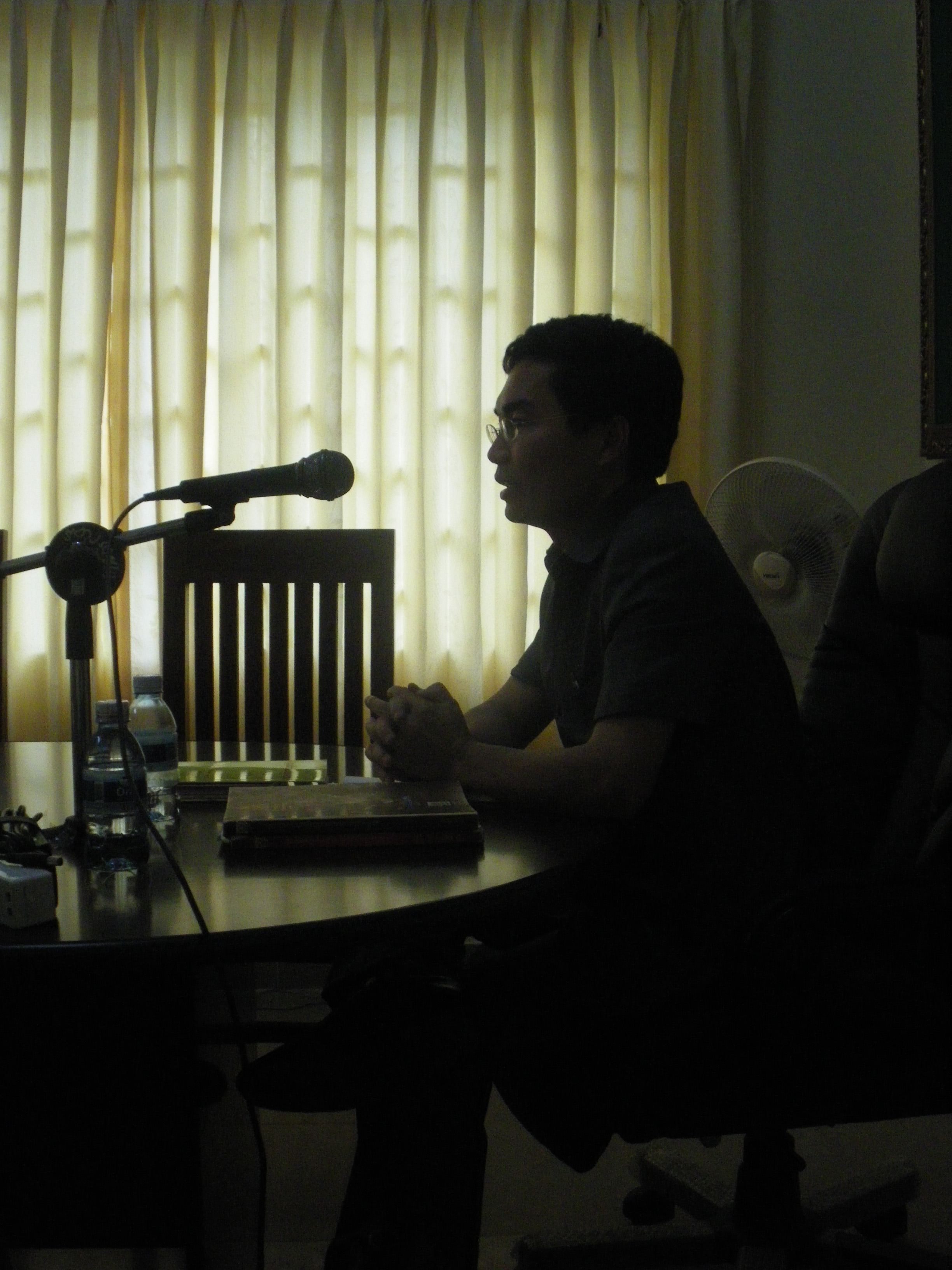Pursat Trip Part 1
Like I mentioned in the previous blog entry, last Wednesday through Saturday I traveled to Pursat with the director of IBJ’s Cambodian program. We met up with two other IBJ employees and checked out the Pursat Defense Resource Center. Then, the roundtable discussion.
The main purpose of IBJ’s roundtable discussions is capacity-building and the spread of information. This one was held in a dimly lit room in the Red Cross building with air conditioning, a large oval-shaped table, and a sign on the wall that read “Roundtable Discussion on Implementation of Criminal Procedure Code and Penal Code. Organized by International Bridges to Justice. 26 May, 2011.” We arrived at 7:00am and uniformed policemen, judges and lawyers began trickling in at around 7:30. The main speaker was the undersecretary of the Ministry of Justice, Bun Honn, who was there to hear about problems of implementation with the new Code. The discussion was, of course, in Khmer, but afterward I gathered what happened from loose translations. Most pointed to the reality that no one really knows about the “new” Criminal Procedure Code, which was published in 2007. Citizens don’t know their rights under the Code, and often even lawyers don’t know their clients’ rights. This lack of education makes the Code ineffective.
After two hours of discussion, we took a ten minute break. Refreshments included sticky rice wrapped in banana leaves, Nescafe with sweet condensed milk, and oranges. I love Cambodia.
After the break, they broke into working groups to brainstorm reasons why Cambodian people do not go to court when they have legal problems. Main issues are largely related to time and money. Traveling to court and hiring a lawyer can be very expensive and the courts tend to be inefficient, so even if a person is able to get into court, the resolution of a case could take years (sound familiar?). Then, even if the court does resolve an issue, there is a large chance that the losing party will not pay; so even after the long and painful process, the judgment may not even be enforced. And of course, the corruption creates a great trust issue between citizens and the courts.
The discussion was a success. The undersecretary agreed with everything that the local legal officials had to say, and will pass on all of the information to the government. He’s going to make great efforts to educate Khmers on the Code and ensure that they are aware of their procedural and legal rights.
Working group discussing why people often choose not to go to court
Having a laugh during the working group presentations
Closing remarks by Mr. Bun Honn



